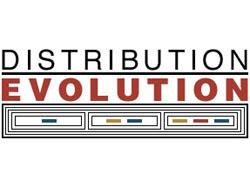Distribution Evolution - July 2007
By Frank O'Neill
Last month, Armstrong World Industries announced that it’s establishing its own retail distribution network in the Pacific Northwest. The move follows the big hard surface flooring manufacturer’s break with Sea-Pac, its long time distributor in the region. The firm’s commercial business in the area will continue to be serviced by Pacific Mat.
So is this the first move toward a national direct selling system? Armstrong president Frank Ready says it’s not.
Armstrong has a very powerful distribution network in other parts of the country, and it would be a big mistake to change that network. But since Sea-Pac parted company with Armstrong seven months ago, the company decided to go it alone, and there are already some pretty decent blueprints for direct selling in the floorcovering industry.
The new company will be called Armstrong NW, and it will be headed by Monte Asken. He’ll have a sales force of eight servicing six product lines: Armstrong Residential Vinyl Sheet, Mode LVT, Armstrong Laminate, Bruce Laminate, Armstrong Hardwood and Robbins Hardwood. They’ll be inventoried in a Seattle warehouse.
“We’re committed to offering the best portfolio of hard surface products, and the best merchandising and support programs geared at helping our retailers in the Northwest be successful and make money,” says the firm’s sales VP, Paul Murfin.
I wouldn’t be surprised if we see other manufacturers try Armstrong’s new “mixed media” distribution set-up if they have a falling out with a major distributor in a particular region.
THE ARMSTRONG AUCTION
The word on the street about the Armstrong auction has long been that the deal would be closed by the end of May. Well, here we are at the end of June, and nothing has happened yet. We do know that at least two of the three major floorcovering manufacturers who were originally in the hunt have pulled out, but another one has now joined the crowd. Stay tuned. We’ll let you know on floordaily.net as soon as something happens.
THE GREEN STORY
Shaw Industries is bringing its green message to retailers in select parts of the country like the Northwest, where more people seem to be environmentally conscious. The company is giving retailers point-of sale-materials that talk about the firm’s Green Edge program. One banner reads, “I want a floor that helps to keep up to 300 million pounds of carpet from landfills each year.”
This isn’t the first time a manufacturer has attempted to bring its green message to retailers. Way back in 1995, Marglen Industries, which is now part of Beaulieu of America, introduced Earth Guard, a line of polyester carpet which it marketed as being made from recycled plastic bottles. Unfortunately, consumers didn’t buy the revolutionary idea, because they thought carpets made from recycled bottles must be dirty.
But today’s consumers are a lot better educated. In fact, John Bradshaw, who’s Shaw’s director of post consumer carpet collection, says they’re also ready. “Our research indicates that 88% are interested in learning about eco-friendly products,” he says.
LUMBER LIQUIDATORS GOES PUBLIC?
Lumber Liquidators has been on quite a ride over the past five years. Sales for the retail hardwood specialist have soared 500% since 2002, rising from $65.3 million that year to $332 million last year.
How has this company grown so fast?
By specializing in a single product—hardwood—at value prices, and by advertising the heck out of the brand and the low prices in shelter magazines and regional pubs like the New York Times Magazine.
Lumber Liquidators was founded in 1994 by Tom Sullivan, who began by selling discounted building materials. He turned to wood in 1996 when, in his own words, he observed that “traditional home improvement and flooring retailers underserved customers in terms of price, selection, product quality and overall value.” So he conceived of the idea of selling wood at liquidator prices. Today, the company sells its products through 93 company stores in 39 centers, an 800 call center, a website and a catalog.
If you think the company follows the big box model, you’re wrong. In fact, all the stores are relatively small and unimpressive, because not much money has been invested in them. The company expects a pre-tax return on invested capital in excess of 140% for stores open more than three years—and that includes all advertising costs.
In May, Lumber Liquidators registered to go public with an initial public offering valued at $150 million. At press time, no date had been set for the IPO, but the company wants to use the money to expand its store base, with 25 new stores this year and between 30 and 40 during each of the next few years.
If you don’t have a Lumber Liquidators in your market area right now, you can probably expect one in the near future. The firm will probably be a serious competitor for your hardwood business, too. But don’t forget, you still have one big advantage—you install your floors, they don’t.
If you have any comments about this month’s column, you can email me at foneill898@aol.com.
Copyright 2007 Floor Focus
Related Topics:Lumber Liquidators, Shaw Industries Group, Inc., Beaulieu International Group, Armstrong Flooring
